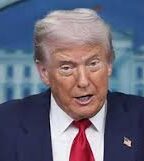
Introduction
In a hard-hitting statement, former Union Commerce and Industry Minister Suresh Prabhu criticized US President Donald Trump’s recent move to impose tariffs of up to 50% on Indian exports, describing it as both “illogical” and harmful to the US economy itself. Speaking during a panel discussion hosted by the Great Lakes Institute of Management, Gurgaon, Prabhu accused Trump of “playing the victim card” despite America’s strong economic standing.
The Trump Victim Card US Economy debate has gained attention globally, as experts question whether these tariffs are rooted in genuine economic concerns or primarily in political strategy.
“Not Surprising, But Shortsighted”
Prabhu, who has had direct dealings with the Trump administration during his tenure as Commerce Minister, said that such tariff hikes were not unexpected but remain strategically flawed.
“This is undoing years of global trade progress. By the law of nature, some will gain, some will lose. But portraying the US as a victim of the global trading system is misleading,” Prabhu argued.
He emphasized that while America’s trade deficit might suggest the country is losing in the global trade game, looking at the broader economic picture paints a very different reality.
US Economy Driven by Consumption, Not Savings
Highlighting the fundamentals, Prabhu pointed out that over 85% of the US economy is driven by consumption rather than savings.
“When American consumers buy more, GDP grows. The reality is that US consumers often prefer foreign products—whether electronics, textiles, or machinery—because they are cheaper or superior in quality to locally produced goods,” he explained.
This consumer preference, he argued, is a key reason behind the trade deficit, not unfair trade practices by countries like India.
Flawed Policy and Unnecessary Tariffs
Prabhu did not hold back in calling Trump’s ‘America First’ policy shortsighted. He questioned the logic of imposing tariffs on critical imported components for industries like Tesla or Boeing.
“What’s the point of taxing components needed to build high-tech cars or aircraft? This kind of thinking doesn’t strengthen your economy—it weakens your innovation base,” Prabhu warned.
According to him, such moves not only disrupt supply chains but also push costs higher for American businesses and consumers.
Political Theatre Disguised as Economic Policy
Fellow panelist Swapan Dasgupta, former Rajya Sabha MP, echoed Prabhu’s views, calling Trump’s aggressive tariff approach a political act rather than an economic necessity.
“This is not economics—it’s politics. Trump has bullied even the European Union, which once saw itself as the global beacon of fair trade. He’s applying the same approach everywhere,” Dasgupta remarked.
Dasgupta further cautioned Indian policymakers to prepare for a relentless US stance, warning that Trump would not back down unless confronted with significant resistance or domestic pushback.
Impact on Indian Sectors
The tariffs, according to Jones Mathew, Principal of Great Lakes Gurgaon, pose a substantial threat to multiple Indian export-driven sectors, including textiles, gems and jewellery, carpets, and agriculture.
Analysts predict a possible 70% drop in US sales for some of these industries, especially if the new tariffs remain in place for an extended period. Global rating agency Moody’s has also noted that the tariffs could slow India’s manufacturing ambitions and overall growth.
Yet, Mathew emphasized that the challenge might also serve as a wake-up call for India.
“This crisis strengthens India’s resolve towards diversification, reforms, and strategic autonomy. Relying too heavily on a single market has always been risky,” Mathew observed.
The Bigger Picture in Global Trade
The Trump Victim Card US Economy narrative ties into a broader geopolitical trend where major economies are leaning toward protectionism. While Trump frames tariffs as a way to safeguard US jobs, critics argue that the approach ignores the interdependent nature of modern supply chains.
Prabhu noted that global trade, not isolationism, has been the driving force behind economic growth worldwide. Curtailing imports for political reasons risks not only economic damage but also diplomatic tensions.
India’s Strategic Response
In response to the shifting US trade policy, experts suggest that India should:
- Expand Trade Partnerships – Strengthen trade relations with the EU, Southeast Asia, and Africa to reduce dependence on US markets.
- Invest in Domestic Manufacturing – Use government incentives to boost competitiveness against cheaper imports.
- Negotiate Strategically – Approach US talks with data-backed arguments that highlight mutual benefits.
- Promote Value-Added Exports – Shift from raw materials to higher-value goods where India has a competitive edge.
These measures, combined with diplomatic engagement, could offset the potential losses caused by the tariffs.
Political Messaging vs. Economic Reality
The ongoing debate over the Trump Victim Card US Economy reveals a deep divide between political rhetoric and economic facts. While Trump claims unfair trade is harming the US, indicators like strong GDP growth, record-low unemployment (pre-COVID), and high consumer spending suggest otherwise.
By portraying the US as the “victim,” Trump appeals to a domestic political base that feels threatened by globalization, but experts like Prabhu argue that such narratives ignore the benefits of global trade for the US economy itself.
Conclusion
Suresh Prabhu’s remarks cut through the political theatre, exposing what he views as a false victimhood narrative in US trade policy. The Trump Victim Card US Economy debate is not just about tariffs on India—it’s about how major economies choose to position themselves in an interconnected world.
For India, the challenge is to adapt, diversify, and strengthen economic resilience. For the US, the question remains whether political gains from protectionist rhetoric are worth the long-term costs to innovation, trade relations, and consumer welfare.

